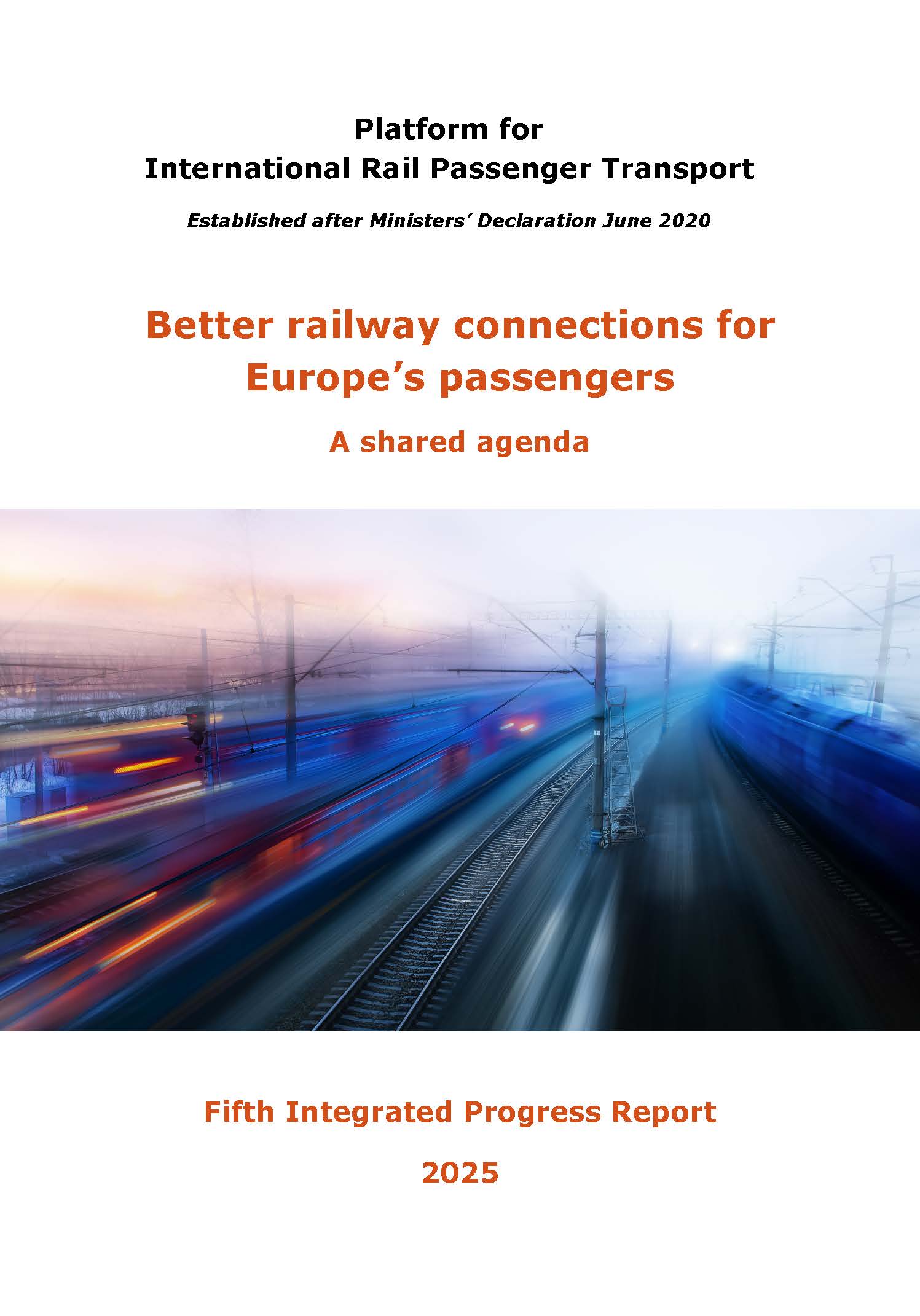 The Fifth Integrated Progress Report of the Ministerial Platform on International Rail Passenger Transport (IRP) was published in time for the meeting of the EU Transport Council in June, where it was presented by the Austrian and Dutch delegations.
The Fifth Integrated Progress Report of the Ministerial Platform on International Rail Passenger Transport (IRP) was published in time for the meeting of the EU Transport Council in June, where it was presented by the Austrian and Dutch delegations.
The IRP was set up in 2020, tasked with a common agenda aimed at fostering and supporting the improvement of cross-border railway passenger transport in cooperation with the relevant stakeholders. The Platform comprises EU Member States, together with Norway and Switzerland, the UK joining as an observer in 2022. It is advised by a Sector Mirror Group with participants ranging from third party retailers to specialists both from incumbent and new entrant railway undertakings. This Group is chaired jointly by Alberto Mazzola, CER, and Christopher Irwin, EPF. It also involves representatives of the European Commission, European Union Agency for Railways, OTIF, and EU-Rail.
The Platform concentrated its work in 2024-2025 on monitoring progress in the international rail passenger market, considering four key market segments: regional cross-border, long-distance cross-border, high-speed cross-border, and cross-border night trains. The results show a positive market development in particular regarding the number of cross-border night trains and high-speed trains, with more services expected to be launched in the next years.
A key issue is improving the availability of international rail ticketing for passengers. The Platform recognized the sector’s efforts in developing common ticketing standards, but noted that key areas of disagreement within the sector continue to exist and that a number of the significant first phase objectives set out in CER’s Ticketing Roadmap for 2025 had still to be delivered. Conformity with the FRAND principles (fair, reasonable, and non-discriminatory competition) still falls short, and identified shortfalls are not primarily technical. Regardless of the standard used, a state of affairs where incumbent operators exclusively sell their own tickets and those of their cross-border counterparts, can be expected to continue to limit the uptake of open access services and frustrate the rail sector’s ambition to develop as the backbone of a sustainable European transport system. The Platform recognised the issue as existential and therefore recommends that this concern is addressed progressively and with the public interest as the guiding principle.
Next to customer experience and digitalisation, the Platform considered an array of further critical enablers for a modal shift towards international railway passenger transportation, including:
- Completing the TEN-T infrastructure network
- Technical interoperability
- Governance and capacity allocation
- Availability of rolling stock
- High-speed network
- Night trains
- Regulatory framework and competitiveness of the rail sector
- Intermodal connectivity.


 Stay informed!
Stay informed!